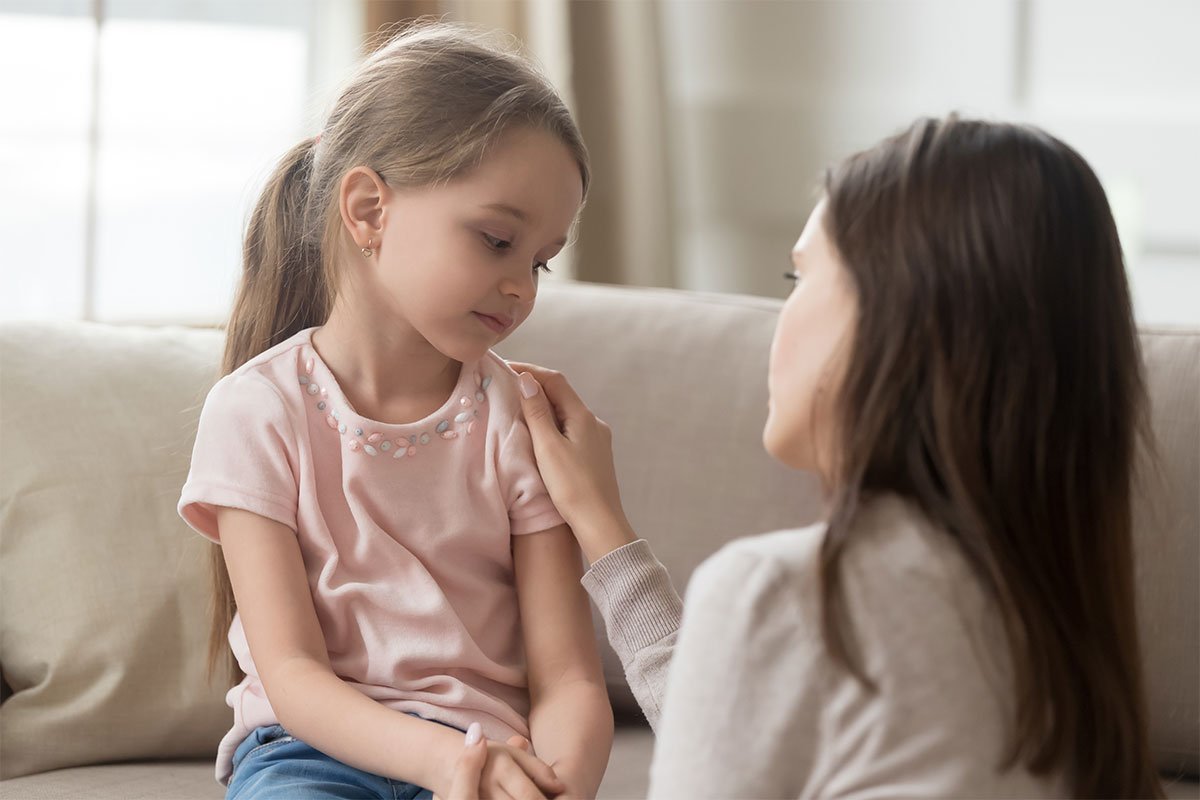
We can all admit it: The COVID-19 outbreak is a scary time. Parents are home from work, trying to manage daily schedules for kids and chores, as well as themselves, while listening to the evolving daily news and checking in on family members.
What that nervousness, stress and new normal looks like to you may look very different to your kids. You might start to notice in the coming weeks, or already have, their need to ask pressing questions, wanting to know what’s happening.
In order to answer their questions and look out for potential signs of added stress or coping behaviors, we spoke with Julie Lenfestey, MA, Licensed Professional Counselor (LPC), to get her insight. She has over 10 years of experience working with children and adults living with anxiety, depression and PTSD. Highlights from our conversation below.
What questions might children be asking about the coronavirus that should prompt parents to talk about it with them?
They’ll ask things like, “How long will this last? What are my chances of getting ill and/or dying? Will I die? Will you die or get sick? What if my grandparents get it, will they die? Why can’t I see my friends or go anywhere I like to go? What does ‘flatten the curve’ mean?”
Those are tough questions to answer. How should parents best balance discussing the reality of the virus (such as the severity or the potential of spread, etc.), while continuing to remain positive with their kids?
I think it’s best to be as fact-based as possible without giving too much unnecessary detail. Kids are smarter and more resilient than we give them credit for. They have heard lots of things, whether you want them to or not, and they need to know the actual facts instead of what the rumors are that they’ve heard. We can tell them the risk is extremely low for death without telling them the actual percentage, or that it’s fluid and we “just don’t know.” Those numbers are scary and when the adults around you don’t know, that just breeds more anxiety. We can tell them why they need to be vigilant about washing hands and not going to see friends without scaring them with the reality of Italy or Wuhan, as well as news or statistics. They need to know that this is temporary, that it will end and things will eventually go back to normal, and show them facts to back it.
How should parents approach speaking to their children about the situation?
Parents should ask children how they are doing with all the changes happening around them, even if the child doesn’t ask outright. Kids may have assumptions about it they don’t feel the need to talk about (and they could be wrong!) or they can sense your fear and anxiety about it and don’t want to upset you by bringing it up. It’s helpful to ask them how they feel about all the changes instead of just asking how they feel about the virus. They may not know how to feel about a virus, but they certainly have feelings about everything going on around them.
What are things to avoid in these discussions with children?
In general, reaching out is good. What isn’t helpful is having the news on in front of them or constantly talking to them about the virus to the exclusion of other things they may be interested in or concerned about. Get your news fix out of their earshot and make sure Google isn’t the homepage on their computer/device because of all the clickbait that may be untrue that comes up automatically. Don’t talk about your fears in front of them. They will take on your fears and, as adults, we need to show our kids that we are looking out for them and can handle this.
Are there any behaviors that parents should look out for that indicate a deeper situation, such as anxiety, depression, stress or other behaviors in their kids?
Yes. Keep an eye out for increased anger or lashing out at others, self-isolation, increased crying or moodiness, notable change in eating or sleeping habits, nightmares and constantly seeking reassurance. These signs separately or in combination can indicate your child is having trouble and needs help from a trusted adult or, in some cases, a professional. Of course, with all the increased togetherness, it is normal to expect some fighting and heightened emotions, but parents need to look out for what seems excessive beyond the changes in our living situations.
When should parents reach out for help from a professional with this type of situation?
Reach out for professional help when you don’t feel your child is feeling better after you’ve tried to help them the best you can. There is nothing wrong with needing help outside the family and sometimes it is warranted to ensure your child gets what they need to feel their best and function well. Parents sometimes need to seek out their own professional help and that is just as helpful to the children involved and the family as a whole.
Are there any fun ways to get family members talking and opening up those lines of communication while in quarantine or limiting public encounters?
Family games are great, including outside games! Even without bringing up major issues, together time without pressure and to just talk can elicit discussion naturally. For children who aren’t fond of talking outright or seem resistant, ask them to draw pictures of how they’re feeling or what they think is happening and ask them to explain it to you.
Is there anything else parents should know about talking to their kids about the coronavirus or stressful situations?
Don’t overwhelm them with information. Give them the information they need to help them understand the situation and to stay safe and healthy, and leave it at that. Answer their questions at their level but don’t dumb it down; they understand more than you think. They need to know the adults around them have this thing under control and that’s why we’re all being so careful.
For more local coverage on COVID-19, please click here. For more family content, subscribe to our weekly Family newsletter.




